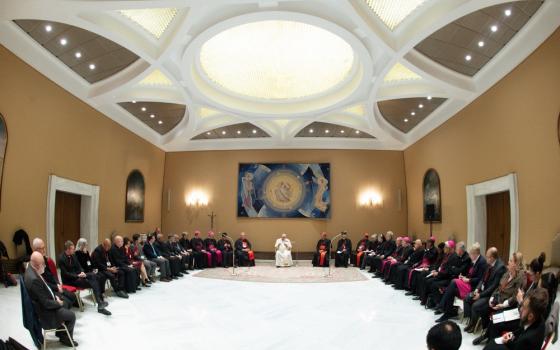On this day, The Help, a DreamWorks production directed by Tate Taylor, opens in theaters across the country. The movie is based on the best-selling novel by Kathryn Stockett.
I finally read the book last week. How bad could it be? In last Sunday's New York Times Book Review, it was #1 on the combined print and e-book list, #1 on the e-book list, and #1 on the trade paperback list. I could mention some imperfections, but since I couldn't put it down, I won't complain.
It reminded me of various things and various people, including priests' housekeepers. I had read an article a few weeks earlier about Addie Christiansen who retired after 31 years as the rectory housekeeper at Immaculate Conception in Clarksville, Tennessee, and she was still on my mind. Click here to see her picture and to read her story, written by Jack Murphree, in the Tennessee Register.
From that:
"On May 27, Immaculate Conception parishioners gave Christiansen a retirement luncheon in recognition of her long employment at the church. 'They told me I could invite my whole parish,' she said. 'When I told them how large my Baptist church was, we settled on my Sunday school class,' Christiansen giggled."
She had worked for several priests, seminarians, and deacons over the years.
"One of Christiansen’s undeniable favorites was Father Fowlkes, now the pastor at Our Lady of the Lake Church in Hendersonville. 'He was my baby priest. He was like my own son,' said Christiansen.
"Father Fowlkes took over the pastoral duties at Immaculate Conception in 1992 when he was 29 years old. 'Ms. Addie became a second mother to me,' said Father Fowlkes. 'She was a strong source of encouragement for me and always so kind and full of hope.'"
Not all priests' housekeepers were happy, of course. There are sad cases of abuse and exploitation. In the nineteenth century, many nuns were required to serve priests and seminarians. The Sisters of St. Francis of Assisi of Milwaukee were made into servants of a seminary. They had to take turns living their rule. They described themselves as "crucified by their work." The seminarians complained about their cooking. The priests who directed them forced them to work without pay because of the debt on their house.
The Sisters of the Holy Cross provided "ancillary" services to the priests of their order in France and at Notre Dame, Indiana. Father Edward Sorin, the founder of Notre Dame, expected them to do the laundry and take care of the infirmary for the priests and the students.
The custom survived well into the twentieth century. In John Cornwell's Seminary Boy, Doubleday, 2006, he describes the nuns who cooked and scrubbed and served at his seminary in England.
The same situation was found in this country, where religious sisters worked at abbeys and seminaries. In The Meaning of the Mountain, Helicon Press, 1963, Sister Mary Faith Schuster tells of the Benedictine Sisters of Mt. St. Scholastica taking over the kitchens at St. Benedict's Abbey and College in Atchison, Kansas, establishing "the long tradition of hundreds of loaves of bread and all the other activity which made the kitchen warm and perhaps helped to keep boys in college and novices from wavering too early." Page 69.
Lay women served as housekeepers for secular priests. Noirin Deady, a graduate student at University College, Cork, wrote a thesis on priests' housekeepers in Ireland. Click here for an article about her research, written by Lynn Roseingrave for the Irish Examiner.
"'They were poorly paid, the priest decided what to pay them,' said Ms Deady.
"'And while the pay was bad, the lack of job security was worse. Once the priest died, the woman had to leave the house and lost everything.'
"The priests neglected to register their stance as employers and those interviewed by Ms Deady felt the job was a 'vocation' and that housekeepers 'were as dedicated as any religious sister.'"
In another article, linked in the Examiner article, Noirin Deady said the fourteen housekeepers she interviewed "loved their work".
Did housekeepers for American priests love their work? Did they get good salaries? Benefits? Social Security? What about now? It seems that today, the trend is for rectory housekeepers to work part time. Do any priests still have full-time help?
Click here for an advertisement for a rectory housekeeper in St. Louis. (Notice, on the web page, what it says just to the left of the search box.)



